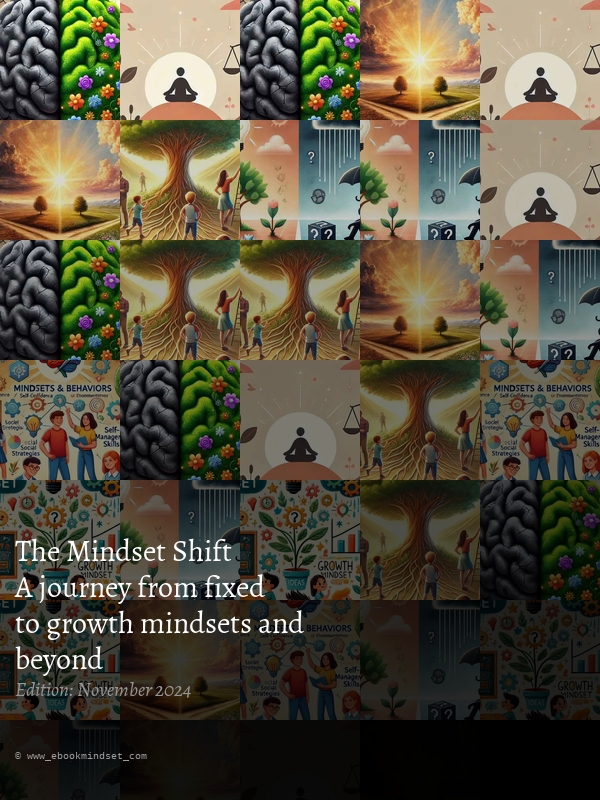Understanding the Mindset of a Warrior
The concept of the "mindset of a warrior" transcends mere physical prowess or combat readiness; it embodies a profound psychological framework that empowers individuals to confront challenges with resilience, determination, and strategic thinking. This mindset is not limited to military personnel but can be cultivated by anyone facing adversity in various aspects of life, including business, sports, and personal development. This exploration delves into the key attributes of a warrior mindset, its historical context, practical applications, and methods for development.
The Definition of a Warrior Mindset
A warrior mindset is a mental attitude characterized by resilience, discipline, and an unwavering commitment to overcoming obstacles. It encompasses several core principles:
- Resilience: The ability to bounce back from setbacks and maintain focus on long-term goals. This involves not only recovering from adversity but also learning from it, adapting strategies, and emerging stronger. A key component of resilience is the ability to manage stress effectively and avoid burnout.
- Discipline: A commitment to continuous improvement and adherence to personal standards. This goes beyond simple self-control; it's about cultivating a consistent approach to goals, habits, and self-improvement. Discipline requires self-awareness, planning, and the ability to overcome procrastination and distractions.
- Courage: The willingness to face fear and uncertainty head-on. Courage isn't the absence of fear, but rather the ability to act despite fear. This involves recognizing and acknowledging fear, but choosing to move forward nonetheless. It requires self-belief and a trust in one's capabilities.
- Strategic Thinking: The capacity to analyze situations critically and make informed decisions. This involves assessing risks and rewards, anticipating potential challenges, and developing plans to achieve desired outcomes. Strategic thinking is about seeing the bigger picture and making choices that align with long-term goals.
This mindset is often associated with historical warriors, but its relevance extends far beyond the battlefield into everyday life. The principles of a warrior mindset provide a framework for navigating the complexities and challenges of modern existence.
Historical Context
The warrior mindset has roots in various cultures and historical periods. From the samurai of feudal Japan, renowned for their Bushido code emphasizing honor, loyalty, and self-sacrifice, to the Spartans of ancient Greece, celebrated for their unwavering discipline and martial prowess, the concept of the warrior has been a recurring theme throughout history. The knights of medieval Europe, bound by their chivalric codes, embodied a similar ethos of courage, honor, and unwavering commitment to their oaths. These historical figures offer valuable insights into the enduring principles of a warrior mindset.
In modern contexts, military training programs emphasize mental toughness alongside physical conditioning, preparing soldiers for psychological challenges in high-stress environments. The ability to remain calm under pressure, to make rational decisions in the face of danger, and to maintain morale in the midst of adversity is as crucial as physical strength and tactical skill. This focus on the mental aspects of warfare demonstrates the critical role of the warrior mindset in achieving success in challenging situations.
Key Attributes of a Warrior Mindset
To cultivate a warrior mindset, individuals must focus on developing specific attributes that go beyond the battlefield. These attributes are applicable to any situation requiring resilience, determination and strategic thinking:
- Emotional Control: Managing emotions in high-pressure situations. This involves developing self-awareness, recognizing emotional triggers, and implementing strategies to regulate emotional responses. Techniques like mindfulness and meditation can be invaluable in developing this skill.
- Adaptability: Adjusting strategies based on changing circumstances. The ability to be flexible and adjust plans in the face of unexpected challenges is crucial. This involves remaining open to new information, being willing to change course, and avoiding rigid adherence to outdated plans.
- Focus on Growth: Embracing failures as learning opportunities. A warrior mindset views setbacks not as defeats but as valuable lessons. This involves analyzing failures objectively, identifying areas for improvement, and using the experience to inform future actions. A growth mindset fosters resilience and prevents discouragement.
- Commitment to Purpose: Having a clear sense of purpose that provides motivation and direction. This involves identifying values, defining long-term goals, and maintaining focus on the ultimate objective. A strong sense of purpose provides the inner drive needed to overcome obstacles and maintain commitment.
- Physical Conditioning: Physical fitness supporting overall resilience. While not the sole defining aspect of a warrior mindset, physical fitness contributes significantly to overall mental and emotional well-being. Regular exercise improves mood, reduces stress, and enhances energy levels, thereby enhancing the capacity to handle challenging situations.
Practical Applications in Daily Life
The principles of a warrior mindset are not limited to the battlefield; they are applicable across various domains of life. The skills and attributes associated with this mindset can significantly enhance one's ability to navigate challenges and achieve success in various aspects of life:
In Business
Entrepreneurs and leaders need a warrior mentality to embrace risks, learn from failures, and persevere in competitive markets. The ability to make difficult decisions, to remain focused on long-term goals despite setbacks, and to inspire and motivate others is crucial for success. Leaders who adopt this mindset foster a culture of resilience, adaptability, and continuous improvement within their organizations. Embracing calculated risks, analyzing market trends strategically, and adapting to changing business conditions are all essential elements.
In Sports
Athletes embody the warrior spirit through rigorous training, unwavering discipline, and a relentless pursuit of excellence. Mental toughness is critical during high-stakes events, where the ability to maintain focus, manage pressure, and bounce back from setbacks can determine the outcome. Techniques such as visualization, mindfulness, and positive self-talk are often employed to enhance mental resilience and focus. The dedication to training, the acceptance of challenges, and the perseverance despite setbacks are key components.
In Personal Development
Individuals seeking personal growth can benefit greatly from cultivating a warrior mindset. Setting ambitious goals and pursuing them relentlessly despite obstacles fosters self-discipline, encourages continuous learning, and promotes a sense of accomplishment. This mindset allows individuals to overcome self-doubt, break through limiting beliefs, and achieve personal transformation. The journey of personal growth often involves facing difficult challenges, and a warrior mindset provides the resilience and determination needed to succeed.
Developing a Warrior Mindset
Cultivating a warrior mindset requires intentional effort and consistent practice. It is a journey of self-discovery and self-improvement, requiring dedication and commitment. It is not a destination but rather an ongoing process of refinement and growth:
- Set Clear Goals: Establish specific, measurable, achievable, relevant, and time-bound (SMART) goals. Clearly defined goals provide direction, motivation, and a framework for tracking progress. This clarity reduces ambiguity and increases the likelihood of success.
- Embrace Challenges: View challenges as opportunities for growth and learning. Instead of avoiding difficult situations, actively seek them out as opportunities to test resilience and develop new skills. This involves a shift in perspective, viewing setbacks as stepping stones rather than roadblocks.
- Practice Mindfulness: Enhance emotional regulation and focus through meditation and mindfulness practices. These techniques help to cultivate self-awareness, reduce stress, and improve emotional control, allowing for a more rational and effective response to challenges.
- Seek Feedback: Embrace criticism as a tool for improvement. Constructive criticism provides valuable insights and identifies areas for growth. Actively seeking feedback from trusted sources allows for objective self-assessment and continuous improvement.
- Train Physically: Engage in regular physical activity to enhance both physical and mental resilience. Physical fitness improves mood, energy levels, and overall well-being, supporting mental strength and fortitude.
- Learn from Failure: Analyze setbacks for lessons learned, rather than dwelling on disappointment. Failures are inevitable, but they provide invaluable opportunities for growth and improvement. The ability to learn from mistakes is a key characteristic of a warrior mindset.
The Role of Community
A supportive and encouraging community plays a crucial role in developing and maintaining a warrior mindset. Surrounding oneself with individuals who share similar values and goals can provide motivation, encouragement, and accountability:
- Mentorship: Seeking mentors who exemplify the warrior spirit can provide guidance, inspiration, and valuable insights. Mentors can offer support, share their experiences, and help navigate challenges.
- Peer Support: Engaging with peers in challenging environments creates a sense of camaraderie and mutual support. Sharing experiences, providing encouragement, and celebrating successes strengthens the collective commitment to growth and development.
- Networking: Building connections with diverse individuals expands perspectives and provides access to new opportunities and resources. A strong network provides valuable support, encouragement, and shared experiences.
Conclusion
The mindset of a warrior embodies resilience, discipline, courage, and strategic thinking, attributes applicable across all areas of life. By understanding its principles and actively working towards cultivating this mindset, individuals can enhance their ability to face challenges, achieve their goals, and thrive in both personal and professional endeavors. Embracing the warrior mindset empowers individuals to transform obstacles into stepping stones toward success, building strength and character through the process.




